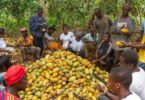Story By: Ishmael Barfi
As today marks World Toilet Day, the government of Ghana has been called upon to work tirelessly to eliminate the numerous barriers as well increase its commitment towards realization of of ensuring every Ghanaiangets access to descent toilets.
This is by investing and providing the relevant policy frameworks as well enfrastructures across the country.
This call was made by the Coalition of NGOs in Water and Sanitation (CONIWAS) in a press release signed by Yaw Attah Arhin, Chairman of CONIWAS to commemorate today’s World Toilet Day.
The 19th of November every year was declared by the United Nations as World Toilet Day in 2012, but even well before then, Ghana had been commemorating the day since 2001.
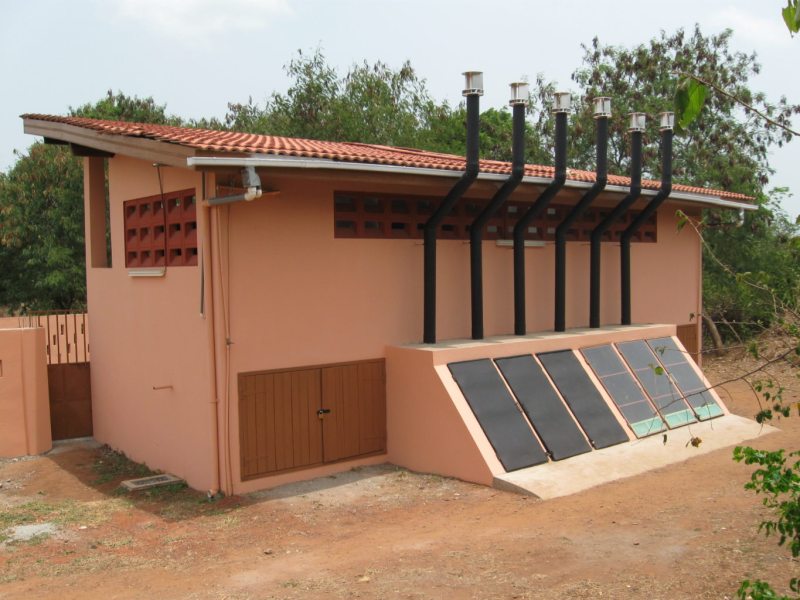
This gives an indication on how passionate the country has been in the quest to improve people’s access to decent toilets and end open defecation.
This is affirmed by the statement of the Deputy Director of Ministry of Sanitation and Water Resources, Kweku Quansah “Toilets are so important that they impact directly on Tourism, Health, Education, Environment, Economy, and Job creation, and is key in the attainment of all other SDGs.”
Accordig to CONIWAS, even though the global theme for this year’s World Toilet Day commemoration is “Sustainable Sanitation and Climate Change,” the Ministry of Sanitation and Water Resources, which coordinates the national commemoration, has chosen ‘Household Toilets for all: Creating Zero Barriers’ as the local theme.
The Coalition of NGOs in Water and Sanitation as a key stakeholder believes that, in spite of all the passion that has been demonstrated in creating access to toilets and ending open defecation in the past and till date, the key barriers inhibiting the ordinary Ghanaian’s access to improved household toilet and the march to eliminate open defecation are still many.
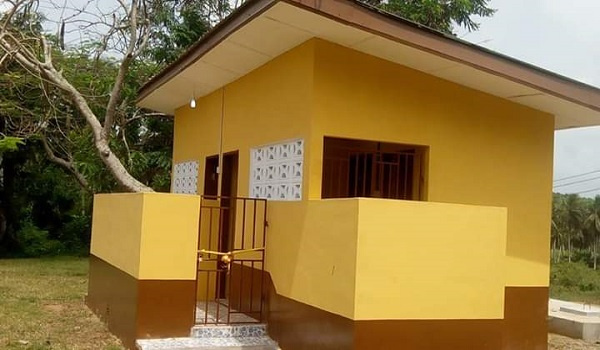
“No amount of talking and investment in sanitation can end open defecation if a number of barriers inhibiting progress are not removed by government and partners,” it noted.
Some of the barriers mentioned include weak coordination of sanitation programmes and interventions in the country from national to district levels.
Whereas the Ministry of Sanitation and Water Resources is expected to coordinate and provide policy direction for sanitation in the country.
However, there is still a disconnect between the Ministry and the District Assemblies, which also have the mandate to ensure sound environmental sanitation in every community.
Menwhile, the Ministry according to the press release lacks a dedicated agency that could focus all its attention on sanitation, including raising funds and collaborating with District Assemblies to implement programmes.
Adding, government’s promise of establishing a National Sanitation Authority has still not been redeemed, that institutional gap still remains one of the biggest barriers in solving the problem with people’s access to decent toilets and thereby entrenching open defecation.
The absence of functional sewerage systems in the country is a key barrier that, it compels landlords to construct on-site toilets, which are more expensive to install and manage.
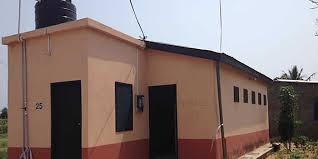
Furthermore, the release noted that, if there were sewer pipes close to people’s homes, installing a water closet and connecting to the sewerage system would be cheaper than constructing septic tanks and desludging regularly.
To CONIWAS, there is no clear government scheme to intentionally make construction of household toilets cheaper through special finance support mechanisms with the exception of a few areas that are benefiting from subsidized toilets by government, the rest of the country has to pay the full cost of constructing a standard toilet, making it difficult for poor households to access decent toilets.
With regards to low investments on sanitation by national and local governments the Coalition, attributed it to the limited progress of policies and programmes aimed at improving sanitation access in the country.
“Another barrier is that there is currently no national plan with timelines and clear financing strategy to ensure that every household has a toilet adding, the old projectized way of doing things does not present any clear roadmap with demonstrated commitment to make toilets available to all”.
Admitting that, there is a fragmented approach to sanitation promotion as different partners implement different short-term projects in locations they want, sometimes with different implementation approaches”.
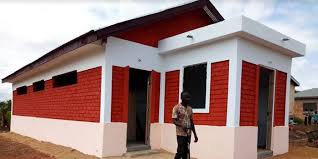
Revealing that, weak enforcement of environmental laws in Ghana is another barrier that needs urgent attention.
Ghana’s building code compels every developer to construct a toilet but said essentially, there should not be any house in the country without a toilet.
“Before a building permit is approved, the plan must include a toilet. It is therefore amazing how come there are tens of thousands of houses, not to mention households, which do not have toilets at all.
In the latest Demographic and Health Survey by the Ghana Statistical Service, about 17% of households do not have any form of toilets at all, while the 2018 Multiple Indicator Cluster Survey also indicated that 22% of the population practises open defecation.
Weak enforcement also includes inability of the mandated institutions to prosecute offenders like those who practise open defecation to deter others from doing same.
Societies have various traditional practices and norms some of which are negative and need laws and enforcement to protect the environment.
By the day, 22% of the Ghanaian population practices open defecation and prosecution is very insignificant.
CONIWAS on the occasion of World Toilet Day, salutes all Ghanaian households with decent toilets, all Ghanaians who do not practise open defecation, and organizations and institutions, including CSOs, private sanitation businesses, the mass media and government agencies, who are making great contributions to national efforts at providing access to household toilets.
It is the wish of the Coalition to witness a better sanitized Ghana by same time next year.
The Coalition of NGOs in Water and Sanitation (CONIWAS) is a membership-based umbrella CSO formed in 2003 to advocate for improved access to WASH services by the poor vulnerable and marginalised population especially women and children.
CONIWAS engages in WASH Sector activities using evidence-based actions gathered through its research agenda and experiences from its members most of whom support the citizenry with WASH Services at regional and local government levels.
Membership of CONIWAS currently stands at 90 and are spread throughout the country.
Source: www.thenewindependentonline.com


